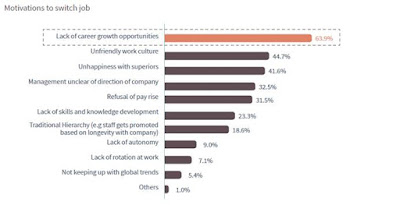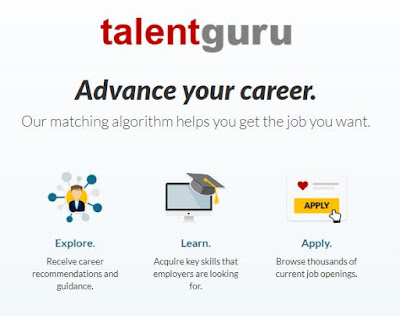 |
| Source: Randstad Singapore's 2025 Job Market Outlook and Salary Guide. Hiring managers are prioritising those with sales and business development skills. |
Singapore’s job economy is set to see improvements in 2025, with services sectors leading growth, said Randstad. The trend is supported by AI adoption and a strong focus on revenue and cost management, the company said.
Randstad Singapore's 2025 Job Market Outlook and Salary Guide highlights the demand for skilled professionals across finance, technology, and professional services as companies navigate digital transformation and growing skills gaps in the workforce.
David Blasco, Country Director at Randstad Singapore said: “Singapore's digital transformation journey is creating unprecedented opportunities and challenges across sectors. As employers grapple with talent scarcity, we're witnessing greater demand for professionals skilled in AI, data analytics and digital infrastructure, alongside a strong focus on revenue generation and business development capabilities.
“The evolution is reshaping traditional corporate roles, with functions from banking and finance to human resources now expected to contribute to business growth and adapt to new technologies. The dual pressures of technical advancement and commercial expectations are elevating hiring requirements for both technical expertise and business acumen, presenting new challenges in talent acquisition and development.”
A recent survey by Randstad Singapore revealed that 49% of employers plan to increase their headcount in 2025, while 40% aim to maintain their current workforce. In addition, 43% of companies are projecting average salary increases of 3% to 5% in 2025. These findings signal positive business sentiment, with organisations regaining their confidence to expand their teams in 2025.
The results also indicate that revenue generation is a key priority for businesses, with 45% of employers expecting the highest hiring activity in sales and business development. Technology remains a crucial focus, with 23% of employers prioritising tech talent acquisition, followed by 13% planning to invest in digital transformation and AI professionals.
Despite optimistic growth plans, employers face significant challenges. Two thirds cite a shortage of candidates with required skills as their primary hiring challenge, while 38% report intense market competition for talent. In response, 38% of organisations plan to increase their budgets for technical roles, while 30% will focus on internal promotions.
Blasco said: "The convergence of AI adoption, sustainable finance and digital transformation is fundamentally reshaping Singapore's business landscape. Success will hinge on organisations' ability to bridge the skills gap, particularly in high-demand areas like AI, sustainability and digital transformation where competition for talent is most intense. As we enter 2025, more companies will seek support from industry experts to secure top professionals while building inclusive, driven and flexible work cultures that attract and retain exceptional talent.”
Explore
Randstad Singapore's 2025 Job Market Outlook and Salary Guide serves as a strategic resource for employers navigating talent acquisition in high-competition areas, providing insights into in-demand skills, talent expectations and salary data for 2025. This year's report features detailed salary benchmarks across nine key industries in Singapore. The report is available on https://www.randstad.com.sg







